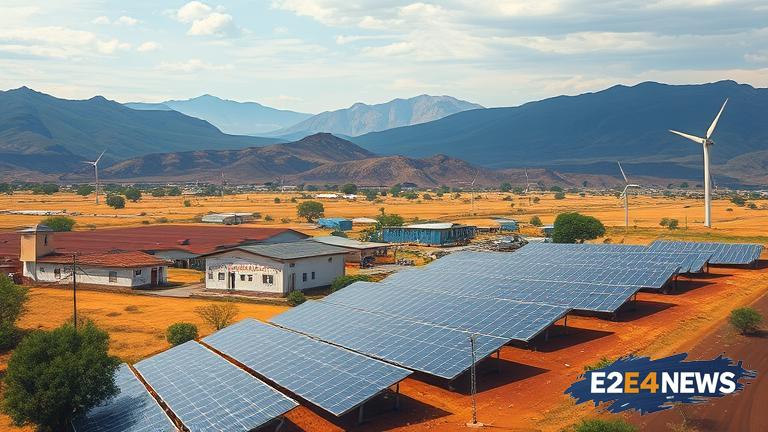The African continent is witnessing a significant shift towards renewable energy, driven by the need to address the pressing issues of energy access, energy security, and climate change. With many countries still struggling to provide reliable and affordable electricity to their citizens, renewable energy has emerged as a viable solution. Solar and wind power are leading the charge, with countries like South Africa, Egypt, and Morocco investing heavily in these sectors. The African Union’s ambitious goal of achieving 100% access to electricity by 2030 has further accelerated the adoption of renewable energy. Governments are implementing policies and regulations to support the growth of the renewable energy industry, including tax incentives, feed-in tariffs, and net metering laws. Private sector investment is also pouring in, with companies like Vestas, Siemens Gamesa, and Enel Green Power establishing a presence on the continent. The cost of renewable energy technologies has decreased dramatically over the years, making them more competitive with fossil fuels. Additionally, the integration of renewable energy into the grid is becoming more efficient, thanks to advancements in energy storage and smart grid technologies. As a result, many African countries are now able to generate a significant portion of their electricity from renewable sources. For instance, Kenya’s Lake Turkana Wind Power project is one of the largest wind farms in Africa, generating enough electricity to power over 300,000 homes. Similarly, South Africa’s Renewable Energy Independent Power Producer Procurement (REIPPP) program has attracted significant investment, with over 100 projects awarded to date. The benefits of renewable energy are numerous, including reduced greenhouse gas emissions, improved air quality, and enhanced energy security. Moreover, the renewable energy sector is creating new job opportunities and stimulating local economies. However, challenges persist, including the need for greater investment in transmission and distribution infrastructure, as well as the development of more effective energy storage solutions. Despite these challenges, the future of renewable energy in Africa looks promising, with the International Energy Agency (IEA) predicting that the continent will become a major player in the global renewable energy market. The African Development Bank has also pledged to support the development of renewable energy on the continent, with a focus on mobilizing private sector investment. As the world transitions towards a low-carbon economy, Africa is well-positioned to play a leading role in the renewable energy revolution. With its abundant natural resources, favorable policies, and growing demand for energy, the continent is poised to become a hub for renewable energy development. In conclusion, the growth of renewable energy in Africa is a testament to the continent’s commitment to sustainable development and its determination to address the pressing challenges of climate change and energy access. As the sector continues to evolve, it is likely that we will see even more innovative solutions and partnerships emerge, driving the transition to a cleaner, more sustainable energy future for all Africans.
